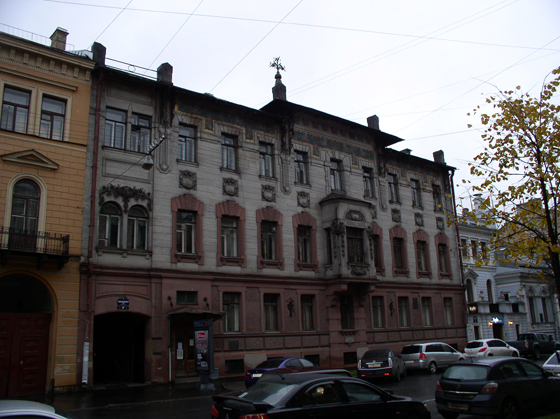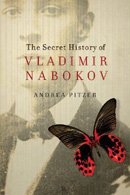Why we need a Secret History of Vladimir Nabokov
Why focus on Nabokov? And why now? These are questions I’ve been asked by everyone from prospective publishers to strangers who have heard I’m writing a book.
Because there was no shortage of drama in his life, stories about Nabokov have endless potential. He fled the aftermath of the Russian Revolution with Bolsheviks firing machine guns as his ship pulled away from shore. He lived in Nazi Germany with his Jewish wife and son before escaping to Paris, only to find himself trapped in France well into the beginning of World War II—just weeks, in fact, before the country fell to Hitler. He went on to write Lolita, one of the most scandalous yet popular books of the century.
But why do a book about Nabokov? Not only did he write his own stellar memoir twice in English and once in Russian, but his life and writing have been explored by more than one biographer with access to troves of information. He achieved fame well before he died. His literary accomplishments were so extraordinary that his brilliant helpmeet wife Véra merited a biography of her own. It’s not as if his work is in danger of falling into minor-author status, or he himself has been forgotten. What is there to say that hasn’t been said?
The simplest answer is that Nabokov’s most famous novels present mysteries that have haunted and obsessed readers for decades. These mysteries are sometimes touted as literary enigmas without solutions, but they have plausible answers that can be found by rediscovering the world in which Nabokov lived.
Given that brilliant readers, critics, and scholars have looked intensely at Nabokov’s life, the idea of such answers lurking in history might seem impossible. But diving into his novels and looking at names, dates, and places in them reveal forgotten 20th-century history that goes to the heart of the ideals that mattered most to Nabokov.
What emerges from the fusion of this history, Nabokov’s life, and his books is a portrait of a writer who was not only devoted to art and language and invention, but also to cataloguing the tragedies of his era. He paid largely unnoted attention to the Gulag, the Holocaust, and those whose lives were destroyed by them. He does not appear to have been interested in moral lectures; rather, he invented inspired ways to fold this history inside his art and make readers accountable to both themselves and the past.
I am not arguing that his books cannot be read in all the ways that they have already been devoured and analyzed—simply that we have missed one fundamental way of understanding them. Linking Nabokov’s disturbing fairy tales more directly to the real world and events in it offers us profound new readings of some of the most extraordinary books of the twentieth century.
I believe that introducing the concentration camps, global anti-Semitism, and personal losses that dominated the first half of Nabokov’s century don’t hem in his stories or flatten out his texts, but make them even more amazing literary accomplishments—nonfiction events tucked as treasures inside fictional worlds, waiting to be rediscovered and remembered.

